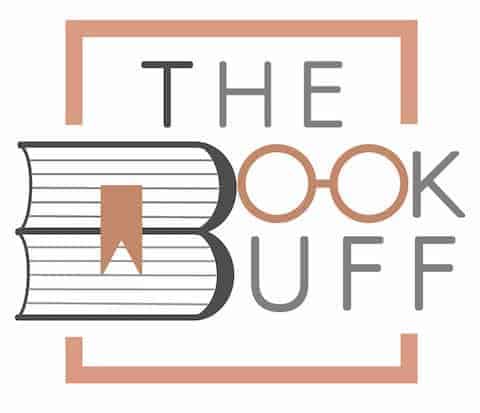7 Mind-Blowing Facts About Reading! [You Will LOVE These!]
Disclosure: This post may contain affiliate links. – meaning I may get a commission if you decide to purchase through my links, at no additional cost to you.
I’m always fascinated with facts! As an avid reader, I’ve always wondered about some really interesting and curious facts about reading and books!
There are many facts and statistics available not only about the pros of reading but also about other interesting aspects. This varies from information about who is the fastest reader in the world to how statistics show that reading can keep you out of prison.
I’m listing seven of the most interesting facts that I found about reading. They are not listed in any specific order. Some I’ve found just interesting but most of them are mind-blowing (and sometimes even disturbing) in their own right.
Here we go!
1. Habitual Reading Makes You Kinder
Do you know that reading can make you kinder?
Researchers at Kingston University in London have found that regular reading makes you kinder and more empathetic. According to these researchers, frequent readers are also more inclined than non-readers to see things from other people’s points of view.
The Research
In their research, 123 participants had to give their preferences for books, or TV programs and plays. The researchers then looked at all the participants’ interpersonal skills and behavior. The research also included the observation of the way they treated other people and to what extent they considered other people’s feelings.
They also looked at the type of books the “reader” loved to read to determine whether the type of book they read had an impact on their emotional intelligence.
The Results
The results were very interesting. They found that the participants who had indicated that reading books were their preference acted usually in a socially acceptable manner. The television watchers were found to be less empathetic and less friendly.
Those who read drama and romance novels were the most empathetic, while the readers of comedy often related well with others. Readers of experimental books were more able to see things from other people’s perspectives.
The Conclusion
The researchers concluded that the reading of fiction, especially prose and comedy, enhanced the participants’ range of empathetic abilities.
2. Reading Makes You Smarter

An education professor, Anne E. Cunningham wrote a research paper where she explained that reading frequently does actually make you smarter. Reading helps you to retain knowledge, and it helps you to remember that knowledge later on in life.
Sub-consciously reading stockpiles your brain with information, and your brain uses this information whenever needed.
Thus, the more you read, the more information is stored, and the more information your brain has available, the better answers and solutions you can come up with.
Conclusion: Reading makes you smarter!
3. The Smell of Books is Important for Many Readers
Have you ever smell the books you are reading?
Books have their own smell and for many readers, the smell of the books they read is just as important as the content of the book. There is actually a word for this – bibliosmia.
Many Readers smell the books they are reading. They will tell you that a reader can become as addicted to the smell of a book as to the content.
But why do books smell, and why do readers find the smell intoxicating? The smell of the book is caused by the chemical breakdown of compounds within the paper. With aging, the smell of the paper changes. Bibliosmia enthusiasts will tell you that the older the book, the better it smells.
There is a link between smell and memory and this fact forms the basis of bibliosmia. A book’s smell gives it individuality. The smell of a second-hand book for instance can tell you something about the previous owner.
It might have a tobacco aroma, telling you that the previous reader was smoking when he read the book. Or the previous owner could have been a woman using a specific perfume and this aroma has form part of the bibliosmia of the book.
Bibliosmia is one reason why the reading of real books will most probably never stop. An e-book can’t smell!
4. Many Americans Have a Low Reading Level
We sometimes forget that not all people have well-developed reading skills. If you are a reader yourself, you seldom think that the reason for a person not to share your love for reading is because they struggle to read.
According to the reading list of the National Assessment of Educational Progress (NAEP), thirty-three percent of American fourth-graders read below the “basic” level on the NAEP national reading test.
The “basic” level means it is the minimum knowledge and mastery of reading that is needed for proficient work at each grade. Unfortunately, these shocking statistics are only the tip of the iceberg.
The Literacy Project released the following statistics in 2019:
- 45 million adult Americans cannot read above a fifth-grade level.
- 50% of adults cannot read an eighth-grade level book.
- Only 25% of students in California schools can perform basic reading skills.
- Three out of four people on welfare can’t read.
5. The World’s Fastest Reader Reads 25,000 Words per Minute

Do you see yourself as a fast reader? Compare your reading speed with the best readers in the world.
In 1990 “The Guinness World Record Book” recognized Howard Berg for his ability to read more than 25,000 words per minute.
However, this is exceptional. A normal reading rate for learning is considered 100-200 words per minute, and for comprehension, it is 200-400 wpm. Speed readers normally read at a rate of up to 700 wpm.
But it is a fact that geniuses read much faster than most people. Napoleon, for example, read at a rate of 2,000 words per minute, while the French novelist, Balzac, could read a small novel in just about 30 minutes!
6. Reading Keeps You Out of Prison
Is it possible that reading can keep you out of prison?
There is no direct evidence that reading protects a person from incarceration, but statistics show that 85 percent of all juveniles who get into the juvenile court system are functionally low literate.
Many American sociologists believe that children who’ve learned to read by the age of eight, and assumingly read books frequently, will most probably not be imprisoned at any time in their lives.
According to “Literacy Mid-South” more than 60 percent of all prison inmates are functionally illiterate and thus not readers. If they receive literacy help and start reading, these inmates have a 16% chance of returning to prison, as opposed to 70% of inmates who don’t become readers.
There is a strong connection between early reading skills and the exploding incarceration rates in the USA. Statistics underscore this connection:
- Juvenile incarceration generally ends the probability of high school completion and thus the development of good reading skills.
- High school dropouts (who generally have not developed reading skills) are 3.5 times more likely to be arrested later in life than high school graduates.
- High school dropouts are 3% more likely to be arrested and imprisonedthan students with four-year college degrees.
7. Books were chained to Shelves in the Past
There was a time in the past when people chained books to the shelves they were placed on. It was the best way to ensure that books were not stolen.
This theft prevention method was widely practiced in the Middle Ages. It took an effort to read a book – you couldn’t just pick it up in a shop or library and take it home to read. You have to spend time in the room where the book was chained.

About the Author
Akansha is a former business journalist and a seasoned communications professional. She is the founder of TheBookBuff, an avid storyteller, and a lifelong biblophile! Check out her profile page to know more about Akansha.



![How to Access Kindle Unlimited Library? [Complete Guide!]](https://thebookbuff.com/wp-content/uploads/2022/11/kindle-g82b6150b9_1920-300x200.jpeg)
![How to Register a Kindle Device? [The Complete Guide!]](https://thebookbuff.com/wp-content/uploads/2021/11/pexels-alisson-lucena-9268223-optimized-300x200.jpeg)

![What is Loc on Kindle? [And How to Show Pages Instead!]](https://thebookbuff.com/wp-content/uploads/2022/12/Featured-Image-Loc-on-Kindle-optimized-300x200.jpg)